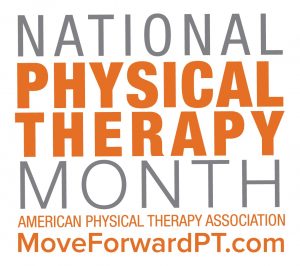
Tidewater Physical Therapy supports the Delmarva Go Purple initiative by offering their expertise on how physical therapy can contribute to the solution of the prescription opioid epidemic.
As Delmarva’s September Go Purple campaign to raise awareness on Substance Abuse tapers-off, Tidewater Physical Therapy and Rehabilitation Associates, P.A., ramps up to celebrates National Physical Therapy Month (NPTM) this October by spreading the message that physical therapy could be a contributing factor to solving the prescription opioid epidemic.
This message is set forth and backed by the American Physical Therapy Association (APTA) who created National Physical Therapy Month. NPTM is a nationally recognized month of awareness each October that educates the public on the benefits of physical therapy. For the past few years, due to the dire opioid epidemic in the United States, the APTA has been promoting the message of “Choose Physical Therapy (PT)” over prescription opioid use for pain management.
The APTA notes that, “The Centers for Disease Control and Prevention (CDC) is urging health care providers to reduce the use of opioids in favor of safe alternatives like physical therapy for most non-cancer-related chronic pain management.”
Jennifer Walter, chief operations and financial officer says, “Although there has been some improvement, the opioid epidemic is still very prevalent; not only on Delmarva, but throughout the United States. Unfortunately, opioids merely mask the pain and oftentimes lead to addiction. Here at Tidewater Physical Therapy, we are offering a real possible solution to those who suffer from pain disorders.
Physical therapists treat pain in a combination of ways. They combine movement, manual therapy (hands-on care), and comprehensive patient education. This inclusive method creates a complete pain management treatment experience. As well, increasing movement can reduce one’s risk of developing other chronic diseases.
According to the APTA, “When PTs work with patients in pain, they use tests and measures to determine the causes of that pain and to assess its intensity, quality, and temporal and physical characteristics. PTs also evaluate individuals for risk factors for pain to help prevent future pain issues.” Once the contributors to a patient’s pain are identified—and the patient’s functional and mobility goals are clear—the PT designs an individualized treatment program combining the most appropriate techniques, including but not limited to exercise, manual therapy, and patient education to address the underlying problem(s).”
Walter continues, “A great health related resource we have to make physical therapy more accessible to the population, is something called Direct Access. Direct Access is a health care benefit that allows one to seek physical therapy treatment without a doctor’s referral. The great thing is that most insurances will accept this benefit.”
The APTA shares that According to the CDC, in 2016 health care providers wrote 214 million prescriptions for opioid pain medication. As well, every day, over 1,000 people are treated in emergency departments for misusing prescription opioids. In addition, as many as 1 in 4 people who receive prescription opioids long-term for noncancer pain in primary care settings struggles with addiction. Further, more, according to the CDC, among new heroin users, about 3 out of 4 report abusing prescription opioids before using heroin. According to the Centers for Disease Control and Prevention (CDC), sales of prescription opioids have quadrupled in the United States, even though “there has not been an overall change in the amount of pain that Americans report.”
“We hope we can spread our message far and wide, that there are safe and effective alternatives to prescription opioids for pain – such as physical therapy. Our therapists and their staff are extremely talented at what they do. They are highly educated, credentialed, and not only that, they are caring individuals. Their goal is to get you back where you are meant to be,” says Walter.
Note: In March 2016 the CDC released opioid prescription guidelines. The guidelines recognize that prescription opioids are appropriate in certain cases, including cancer treatment, palliative care, and end-of-life care, and also in certain acute care situations, if properly dosed.
About Tidewater Physical Therapy
Tidewater Physical Therapy and Rehabilitation Associates, PA was founded in 1984 under the guidance of Dr. W. James Downs, Jr., PT, DSc, ECS. Downs founded the firm in response to local physicians seeking progressive physical therapy services for patients on the Delmarva Peninsula. Since its foundation, Tidewater Physical Therapy has expanded to 16 locally managed offices. Therapists have continued to increase their certifications and knowledge in many specialty areas to provide for their ever-growing patient population. Tidewater Physical Therapy is now the most widely recognized, highly accredited physical therapy firm on Delmarva, setting the standard for exceptional care in a comfortable, friendly and community-oriented setting. In addition, Tidewater Physical Therapy and Rehabilitation Associates is the only certified Medicare Rehabilitation Agency on the Eastern Shore. This classification means our organization is not only credentialed to see Medicare patients, but practices according to a stringent set of operational guidelines, including annual inspections for protection of patients’ rights and safety. For more information about Tidewater Physical Therapy, visit www.tidewaterpt.com or call 410.860.1970.



